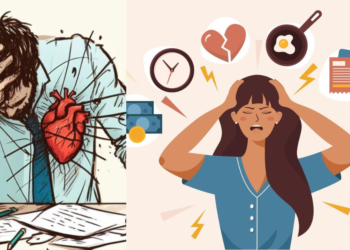Cold weather brings a variety of health difficulties and can significantly impact your heart health by influencing blood pressure and cholesterol levels. During winter, as temperatures decrease, blood vessels narrow, or constrict, to maintain body heat, a process known as vasoconstriction.
This constriction raises blood pressure since the heart must exert more effort to circulate blood throughout the body. Moreover, diminished blood circulation to essential organs can impose additional strain on the heart, raising the likelihood of heart attacks and strokes.
According to Dr. Sushant Srivastava, Chairperson of Heart & Lungs Transplant at Artemis Hospitals, your body’s instinctive reaction to cold weather is to retain heat, resulting in modifications in your cardiovascular system.
Numerous individuals are not accustomed to the physical strain of intense outdoor activities and are unaware of the possible risks associated with being outside in cold conditions. Winter sports fans who neglect specific precautions may experience accidental hypothermia.
Hypothermia occurs when the body temperature drops below 35 degrees Celsius, or approximately 95 degrees Fahrenheit. It happens when your body is unable to generate sufficient energy to maintain a warm internal body temperature. It has the potential to be fatal. Symptoms consist of poor coordination, cognitive disorientation, delayed responses, trembling, and drowsiness.
Youngsters and seniors face heightened risks due to having restricted communication abilities or mobility challenges. Older adults might possess reduced subcutaneous fat and a decreased capacity to feel temperature, which can lead to hypothermia without their awareness of the risk.
Individuals with coronary heart disease frequently experience angina pectoris (chest pain or discomfort) during cold weather.
How to protect your heart during winters:
Wear warm clothes: Wear layers, include a hat, gloves, and a scarf to keep cozy.
Keep moving: Participate in indoor workouts such as walking on a treadmill or gentle jogging to stay physically active.
Monitor your blood pressure: Pay attention to fluctuations in your blood pressure and seek advice from your doctor if necessary.
Control stress: Engage in stress-relief techniques such as deep breathing and meditation to assist in managing blood pressure.
Consume a nutritious diet: Emphasize a diet high in fruits, vegetables, and whole grains. Steer clear of high levels of saturated and trans fats.














